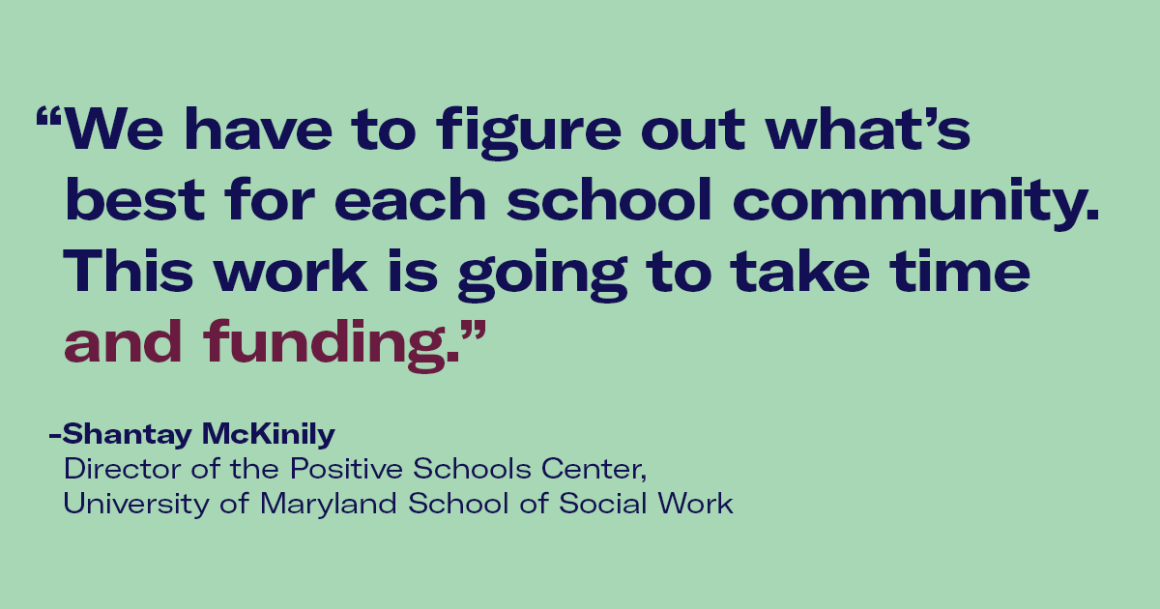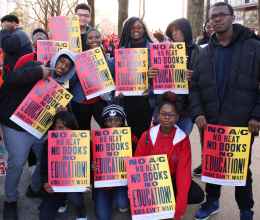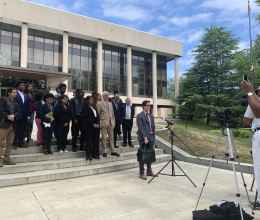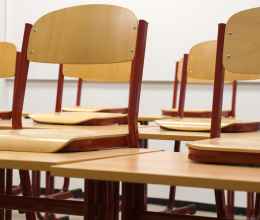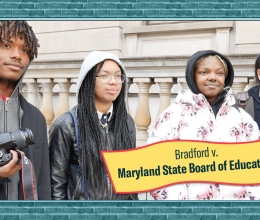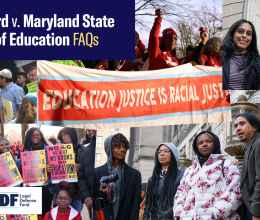
Black and Brown students in Baltimore City deserve to reach their dreams without bearing the burden of inequitable education funding. Many of these students already are burdened by a long history of systemic racism, housing segregation, and economic discrimination that have fostered high rates of poverty, violence, and associated trauma in their communities. The State of Maryland must be held accountable for its failure to provide the necessary funding to deliver a quality education to all students.
Often, passionate community members, teachers, principals, and parents must work twice as hard to create the nurturing conditions needed to teach and support their students’ growth as those working to support students who don’t bear that historical burden.
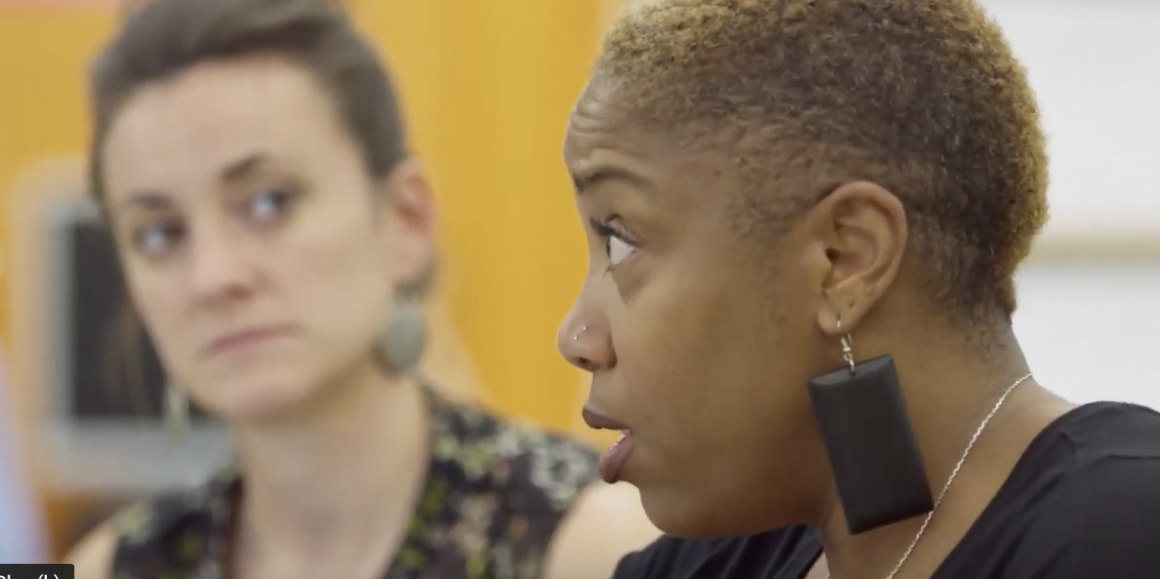
One of those passionate community members is Shantay McKinily, Director of the Positive Schools Center (PSC) at the University of Maryland School of Social Work. PSC is an organization that partners with school districts to offer alternatives to punitive discipline and to foster positive school climates. The PSC takes a broader approach than many education professional development programs that strictly provide training to teachers.
“Anyone that is near kids - hall monitors, front office staff, teachers, school leaders - we train them in restorative practices,” said Shantay.
Through her work, Shantay aims to create optimal learning environments for children. As a 19-year professional of the school system, 8 years of which were spent as Principal of the Walter P. Carter Elementary/Middle School, Shantay implemented programs that coached principals and teachers in restorative practices. Her efforts paid off, resulting in a reduction of suspensions at the school.
“Suspensions don’t work because after suspension, they are coming back,” said Shantay. “Students need to acknowledge what happened and how their behavior affected someone else. It took five years for my school to only have five suspensions.”
The work of the PSC is part of a larger trend. In 2014, Maryland was at the forefront of education reform with the passage of state discipline regulations aimed at ending the use of counterproductive and racially biased “zero tolerance” discipline policies. State regulations now require school districts to directly address how suspensions are administered and who is being suspended.
These regulations shine a spotlight on racial disproportionality in suspensions and expulsions by requiring data collection and reporting on discipline and school arrests. Such reporting promotes fairness and equity in the disciplinary process, helping to keep the pathway to academic success open to all students.
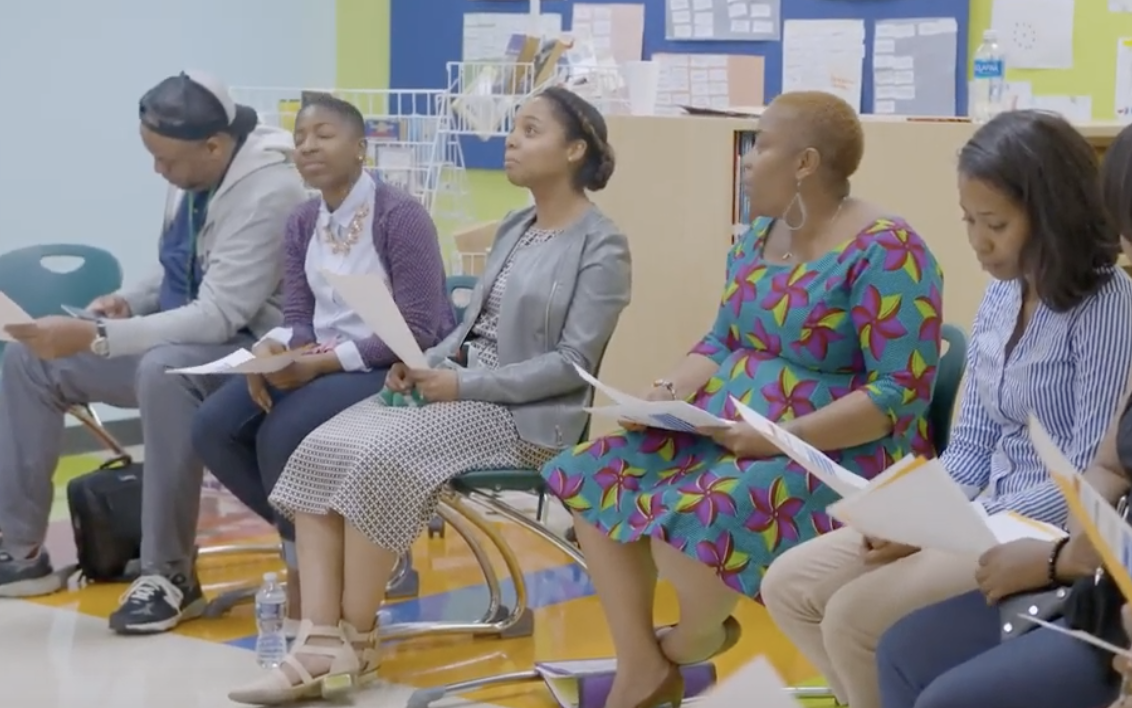
Like Shantay, school leaders and staff across the state support restorative practices to create a positive school climate and reduce out-of-school suspension and expulsions. But to make these programs work, the State must adequately fund programs to support education staff in the implementation of restorative practice strategies in schools.
In order for a school to achieve a positive climate through the implementation of restorative practices, Shantay and the PSC believe educators must address systemic racism: “Everything we do is through a racial equity lens.” This perspective is in line with statewide efforts to end racially biased zero tolerance policies.
In addition to making schools more equitable spaces, the integration of restorative practices in the school setting teaches students to acknowledge pain and feelings in the act of resolving conflicts and dealing with trauma. Shantay said, “Restorative practices provide students with a voice so they don’t have feelings bottled up and can heal through the process. They need to express who they are in schools. Healing is the focus of restorative practices.”
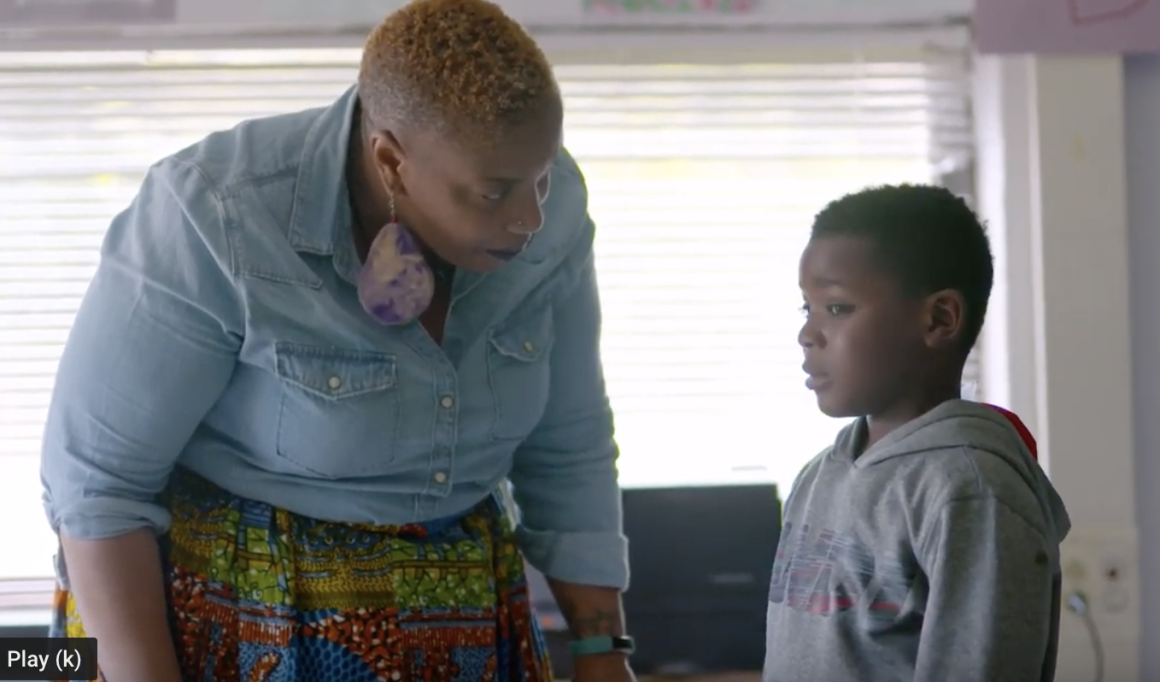
Shantay said that when students understand we are disappointed with actions and separate those actions from who we believe they are as people, the students feel supported and are more likely to make a different decision in the future.
All children deserve programs that will enrich their education and emotional development. Shantay urges efforts to work directly with teachers to ensure they have the tools and skills to create safe and supportive environments, particularly for those students who have experienced trauma: “If we build the teachers’ capacity, these restorative practices will transfer to the students. Teachers are at the frontline. They’re guiding this work.”
Programs like the ones at Positive Schools Center contribute to the creation of comprehensive learning environments that students not only crave but need in order to grow and thrive. However, long-term underfunding from the state cuts away at these opportunities to create and maintain such programs.
“We need continuous coaching and for that we need continuous funding,” said Shantay. “As a principal, I had to find a way to coach and support my teachers. Now I work with the PSC to raise money to support teachers at schools across the city. We need the State to step up and begin to invest in these strategies.”
Under the Maryland Constitution, the State is required to provide a “thorough and efficient” education to all of Maryland’s public school students. Baltimore City teachers, students, parents, principals, and community members have shown their support for their schools and children.
Now, the State of Maryland must fully address the consequences of generations of disinvestment in the education of students in districts with low wealth and high numbers of Black and Brown students. According to the State’s own analysis, Baltimore City Public Schools has been underfunded by over $2 billion.
The ACLU of Maryland is advocating that this focus on addressing wealth and racial inequity also be included in the Kirwan Commission recommendations (for compensatory aid) to ensure students and staff have stronger communication and coping skills in school settings impacted by trauma.
“We have to figure out what’s best for each school community,” says Shantay. “This work is going to take time and funding.”
(Click the image to tweet the quote.)
School programs that foster emotional development are needed in our schools now. These programs give teachers another tool for classroom management, enrich students’ education, and foster students’ ability to learn in safe environments.
Maryland must fund the education of Black and Brown children like the State’s future depends on it … because it does. The days of second-class schools in Maryland must end!
